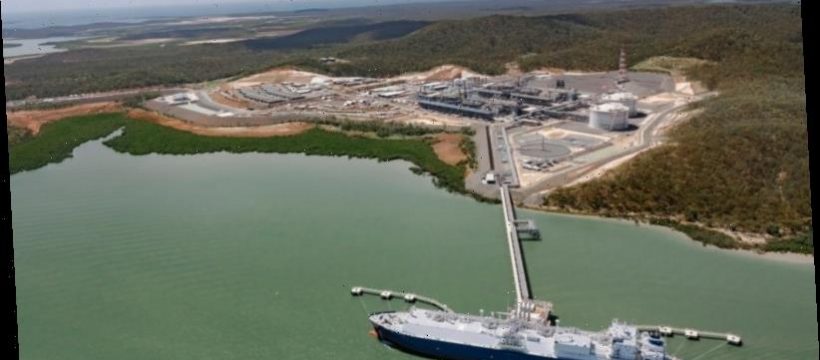Australia's large gas producers are charging local customers far higher prices than overseas buyers, fuelling demands for urgent intervention and calls for exporters to open their books on pricing.
The latest findings of the Australian Competition and Consumer Commission's gas inquiry revealed gas exporters are charging locals at least 20 per cent more for gas, with contract prices of $10 a gigajoule – which is $2 more than the export-parity price offered to offshore buyers.
The consumer watchdog and local industry have called for reforms to drive down domestic gas prices, which remain elevated despite a fall in the international market. Credit:Ashley Roach
Fertiliser manufacturer Incitec Pivot, the country's top commercial gas user, seized on the findings on Monday as evidence supporting long-held concerns that local buyers were "unfairly paying more for their own gas".
"The idea of indigenous gas being cheaper abroad should be a red flag to both consumers and the government, and a clear signal the market needs urgent intervention," Incitec Pivot chief executive Jeanne Johns said.
Global coronavirus travel restrictions slashed energy prices, but Australian gas users have voiced frustration that gas giants have not dropped their long-term contract prices. They want them closer to spot prices of less than $5 a gigajoule in the south-eastern states, or liquefied natural gas (LNG) cargo spot prices of less than $2.50 per million British thermal units. More than 95 per cent of domestic gas sold on the east coast is sold under long-term contracts.
Gas producers, however, insist calls for long-term contract prices to reflect the rock-bottom spot market overlook how transport and retail costs are not included in spot prices.
The federal government signed a Heads of Agreement in 2017 with LNG exporters who pledged to provide enough gas to the domestic market to make up forecast supply shortfalls in 2018 and 2019.
ACCC chairman Rod Sims told The Sydney Morning Herald and The Age the agreement had helped to deal with lack of supply, and now needed to deal with pricing.
"This is the first time we are zoning in on this issue," Mr Sims said. "We’ve got to make sure there is adequate supply with prices that match what buyers can get in the overseas market."
The ACCC recommended the government force LNG exporters to offer domestic buyers the same prices as their overseas customers, and has exercised its powers to demand exporters open their books to justify their export prices.
The Morrison government has cited the need to increase gas supply and build new pipelines to drive down prices and help local industry lead a "gas-fired" economic recovery from the coronavirus crisis.
Energy Minister Angus Taylor said Australian gas users must see the "price reductions locally that are available on the LNG export market", and he would consider the ACCC's recommendations.
Labor energy spokesman Mark Butler called for a national interest test to reserve gas exports for domestic use, "to ensure new gas developments are not just exported overseas and affordable gas is reserved for Australian users".
Labor resources spokesman Joel Fitzgibbon said a gas reservation may be needed if supply didn't keep pace with demand and urged governments to "accelerate" new gas fields and pipelines.
Industry representatives for the oil and gas sector producers said Queensland LNG producers had fully complied with commitments to the federal government to offer uncontracted gas to domestic customers first before selling it overseas.
Andrew McConville, the head of the Australian Petroleum Production and Exploration Association, said the industry was meeting commitments under its original agreement with government and would "carefully consider" any request to extend the agreement.
Mr Sims said while there was "no evidence" of cartel behaviour, gas exporters may be making decisions to charge Australian buyers more.
"I do think they are exporting gas overseas and receiving prices for that well below what they can get domestically. You hear rumours they may be shutting in gas so there is not enough available," he said.
"We haven’t heard a compelling reason for this and we’d like to get to the documents behind the scenes. It’ll be fascinating to see what we get back."
The peak body representing large commercial and industrial energy users, the Energy Users' Association of Australia said a failure to reduce gas prices will cause "costs increase for many essential items every Australian uses".
Get our Morning & Evening Edition newsletters
The most important news, analysis and insights delivered to your inbox at the start and end of each day. Sign up to The Sydney Morning Herald’s newsletter here, The Age’s newsletter here, Brisbane Times‘ here and WAtoday‘s here.
Source: Read Full Article

